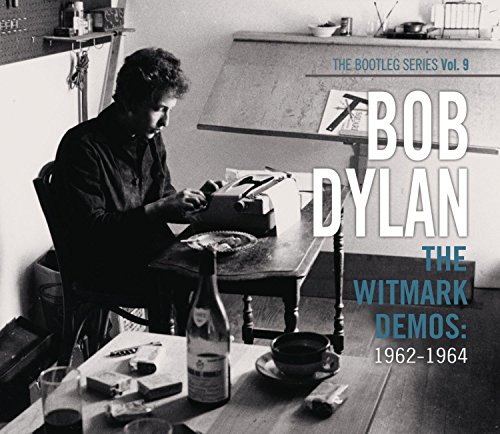
Bob Dylan
The Witmark Demos: 1962-1964
Release Date: Oct 19, 2010
Genre(s): Folk, Pop/Rock, Political Folk
Record label: Columbia
Music Critic Score
How the Music Critic Score works
Buy The Witmark Demos: 1962-1964 from Amazon
Album Review: The Witmark Demos: 1962-1964 by Bob Dylan
Excellent, Based on 8 Critics
Based on rating 9/10
Many of these recordings have been heavily bootlegged, some excerpted on previous Bootleg Series, but they’ve never been presented as completely and in as great fidelity as they are on this two-disc set. Great fidelity seems almost unnecessary for such simple recordings, although the cleanliness enhances the intimacy, so familiar songs are lent freshness when surrounded by the thumping of a microphone or closing of a door. This disarming intimacy -- verging on eavesdropping -- is as attractive as the 15 songs that never appeared on an official Dylan album.
Based on rating 4/5
“Now, it don’t seem to me quite so funny/ What some people are gonna do f’r money” —“Talkin’ Bear Mountain Picnic Massacre Blues” “You looked for work and money/ And you walked a rugged mile” —“Ballad of Hollis Brown” “If you got a lot o’ money you can make yourself merry” —“Hard Times in New York Town” The cover photograph depicts an artist at his craft. The signs of subsistence and the minimal provisions of the starving artist: a lukewarm cup of coffee, an empty bottle of wine, packs of cigarettes, a draftsman’s table, and a typewriter. It’s a bare setting.
Based on rating 4/5
The latest Christmas stocking filler from Dylan Inc is clearly a swizz on some level: 32 of the 47 songs have been released before, many in multiple versions, and even Dylan obsessives might be content for the 15 rarities to gather dust in the vaults. Yet this comprehensive, chronological set of demos from Dylan's formative period, 1962 to 1964, is thrilling – and, for those new to the Bootleg Series, possibly essential. For all their crackling roughness, several of the demos not only stand up to other recordings but surpass them, notably the raw take on I'll Keep It With Mine set to rasping piano.
Based on rating 8/10
In all his various iterations—from folk troubadour to sunglass-clad, plugged-in contrarian to born-again Christian rocker to bluesy, plainspoken elder statesman—Bob Dylan’s artistic persona has always come across as one of clear vision. There’s no waffling in the moment, no tiny cracks of indecision or reticence. Bob Dylan picks his path—often blazing it for others to follow behind—and he doesn’t look back.
Based on rating B
The Witmark Demos: 1962-1964 (The Bootleg Series Vol. 9), this two-CD set of early demos from Bob Dylan’s folkie phase, includes familiar tunes and a bunch of solid obscurities. If there’s nothing truly revelatory, it’s still a dandy opportunity to eavesdrop on the future mouthpiece of a generation finding his voice (sometimes awkwardly). And it’s a hoot hearing our hero occasionally get tangled up in his own ? verbosity.
Opinion: Absolutly essential
At the time of these recordings, the term singer-songwriter didn't exist. Even Dylan's first album, released before the making of these demos, contained only two originals. These 47 songs, then, mark a dramatic change in the music business. Dylan, stripped to vocal, guitar, piano, and harmonica, cut these original compositions because his music publishers, M.
Opinion: Excellent
Any listener will be bowled over by the best of the new material. Sean Egan 2010 In July 1962, Bob Dylan – four months after releasing his unremarkable first album – was signed by prestigious music publishing company M. Witmark & Sons. Over the three-year term of his contract, he transformed himself from covers-dependent naïf to the conscience of a generation and the poet laureate of popular music.
Opinion: Excellent
Bob Dylan No wonder that upstart from the hinterlands — Minnesota! — astonished the Greenwich Village folkies. He had learned profound lessons from the blues, Appalachian ballads, gospel, pop and agitprop. His voice had a young man’s vigor and an older man’s scars and snarls. He could summon righteous anger, absurdist humor and a sense of language that might be casually down-home or biblical in its gravity.
'The Witmark Demos: 1962-1964'
is available now

